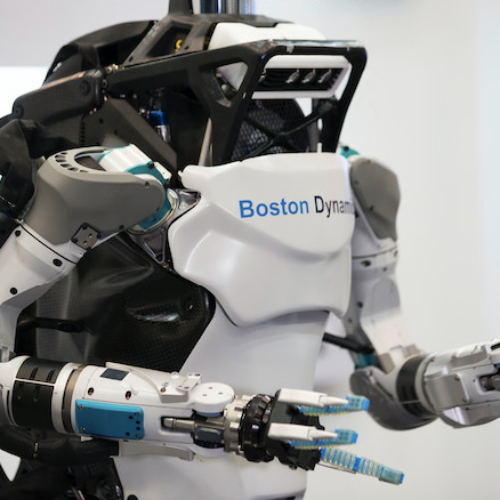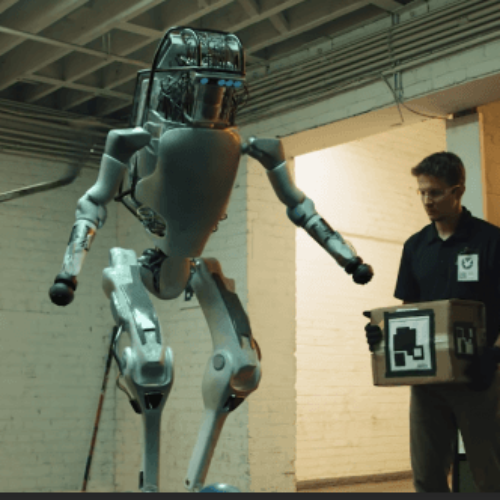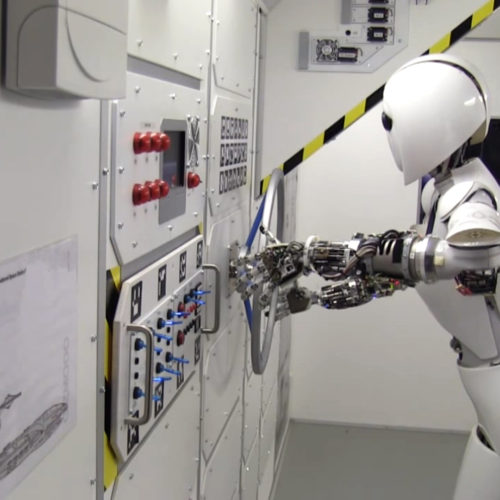Can We Control Killer Robots?
Autonomous weapons are cheap to produce, and they can be fast. Often referred to as killer robots there is some concern about their ability to value human life. Many people are starting to wonder how we can control them, or whether a robot with artificial intelligence could take it upon itself to kill innocent humans. There has been a situation recently in Sudan where soldiers where ordered to fire on protestors outside the military headquarters in the center of Khartoum. They were supposed to do this at the same time as the police and secret service personnel unleashed tear gas into the crowds. However, the soldiers fired their guns into the air and did not shoot anyone, something that was much appreciated by the many people gathered there. How would they have fared if those soldiers had been robots though? Most of them would have died or been injured as the robots carried out their orders.
A panel of Experts Discuss If We Can Control Killer Robots
Killer robots are intelligent machines that can find, select and kill their targets without human intervention. Many countries are racing to be the first to develop such robots, but can they be regulated, and can their use really be justified? If killer robots target and kill the wrong people, who will be responsible for those deaths?
A panel of experts recently met to discuss the social implications of so many countries adopting the use of lethal autonomous weapons.
The panel included top lawyers and arms specialists alongside computer security experts. They all agreed that autonomous lethal weapons are not capable of fulfilling the requirements of international humanitarian law. This is because they go against the principle of the Martens Clause which says that emerging technologies are to be judged by the principles of humanity and from the dictates of public conscience.
The members of the panel also agreed that the automatic function of selecting and engaging with human targets needs to have some human control. The lack of this they decided, dishonors human life and dignity. Emotions help humans to make the right decisions, and that is something killer robots do not have.
Loss of Human Life Will Be Greater If We Cannot Control Killer Robots
With less human soldiers and a lower cost, it becomes easier to wage war on another nation. International law says that before a strike takes place, the amount of innocent civilian lives that would be lost has to be calculated. It should not be excessive compared to the anticipated military advantage of the strike. These ethics are not in the workings of killer robots and these machines would attack indiscriminately. This would result in many more innocent people being killed.
Without risking their own soldiers, it makes it much simpler for states to go to war. Killer robots lower the barriers when there is no fear of many dead bodies returning home. When a machine is programmed to select and kill its own targets, who is responsible if it kills innocent people along the way? Legally, a robot cannot be held responsible and as for the programmers, coders, developers and military commanders in charge, there are many legal obstacles to suing them also.
One of the real risks is that if authoritarian governments use these killer robots on their own people. In a scenario such as the one in Sudan, there would have been many innocent lives lost.
You might also like
Boston Dynamics Atlas Becoming a Ninja!
Three years ago, Boston Dynamics released its first showcasing of the Atlas robot which absolutely stunned the world. It was the most advanced mobile humanoid robot so far, and this
A Parody of Boston Dynamics Robots Fighting Back
Anyone with the slightest interest in robots will have watched a Boston Dynamics video at some point. Each time Atlas, Spot, or one of the robots is further developed they
AILA – humanoid designed to assist astronauts
The Germany Research Center for Artificial Intelligence in cooperation with University of Breman is developing a humanoid robot named AILA (Artificial Intelligence Lightweight Android), designed to assist astronauts on the



